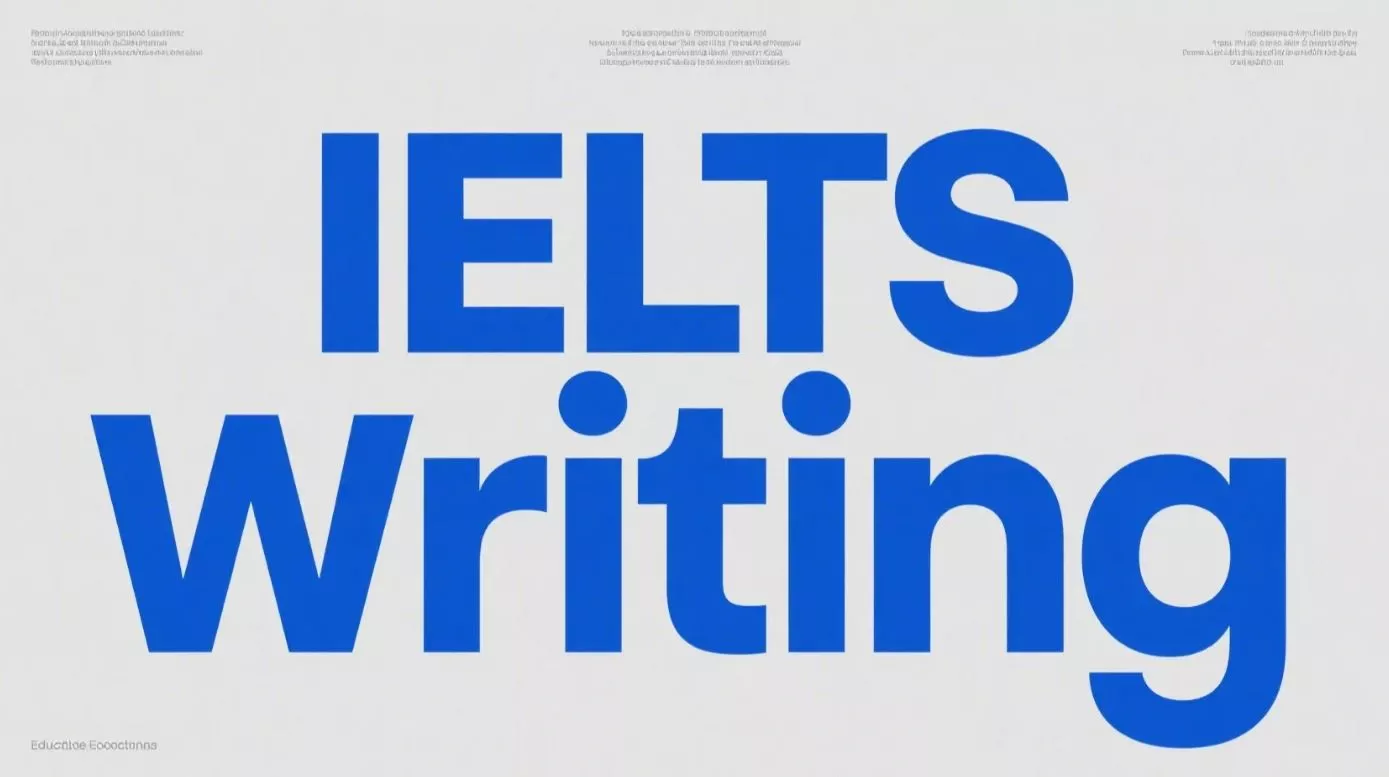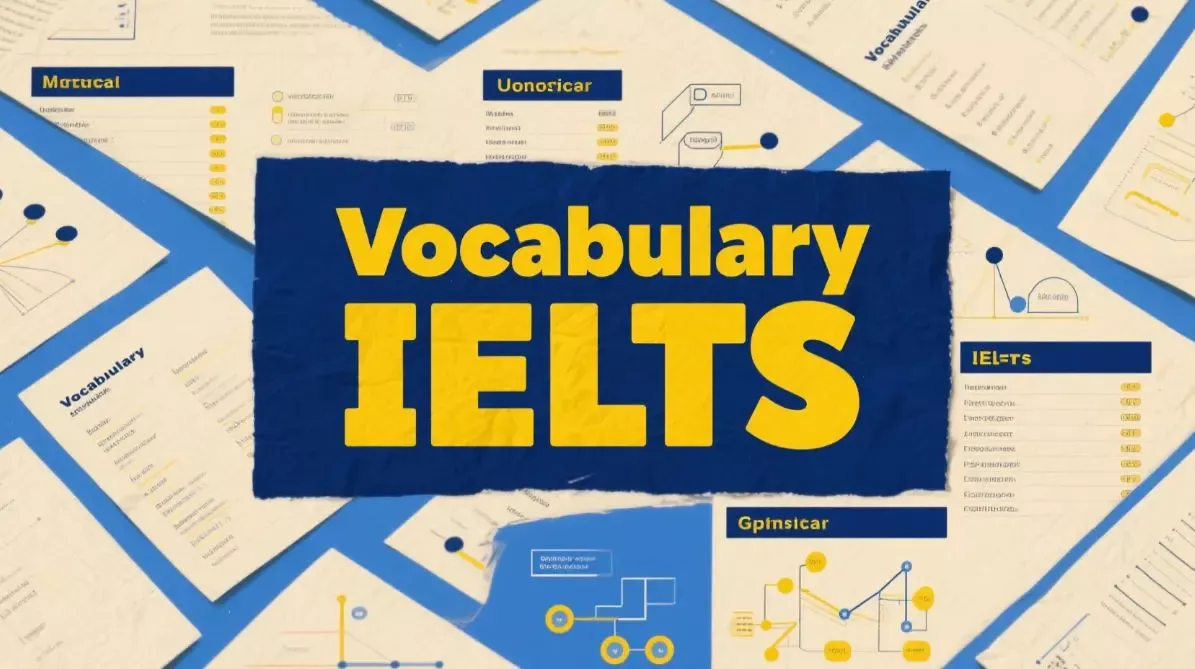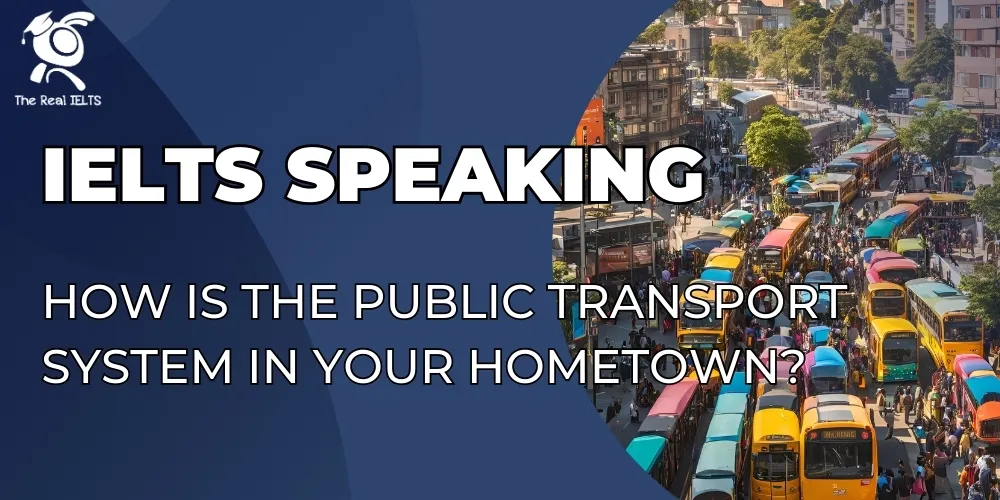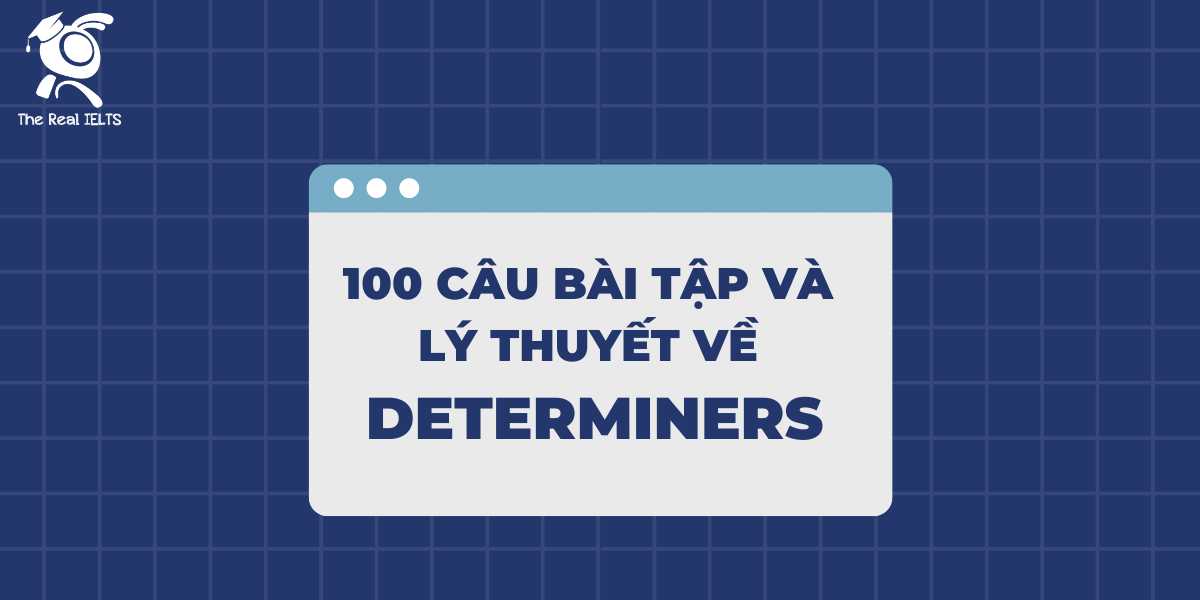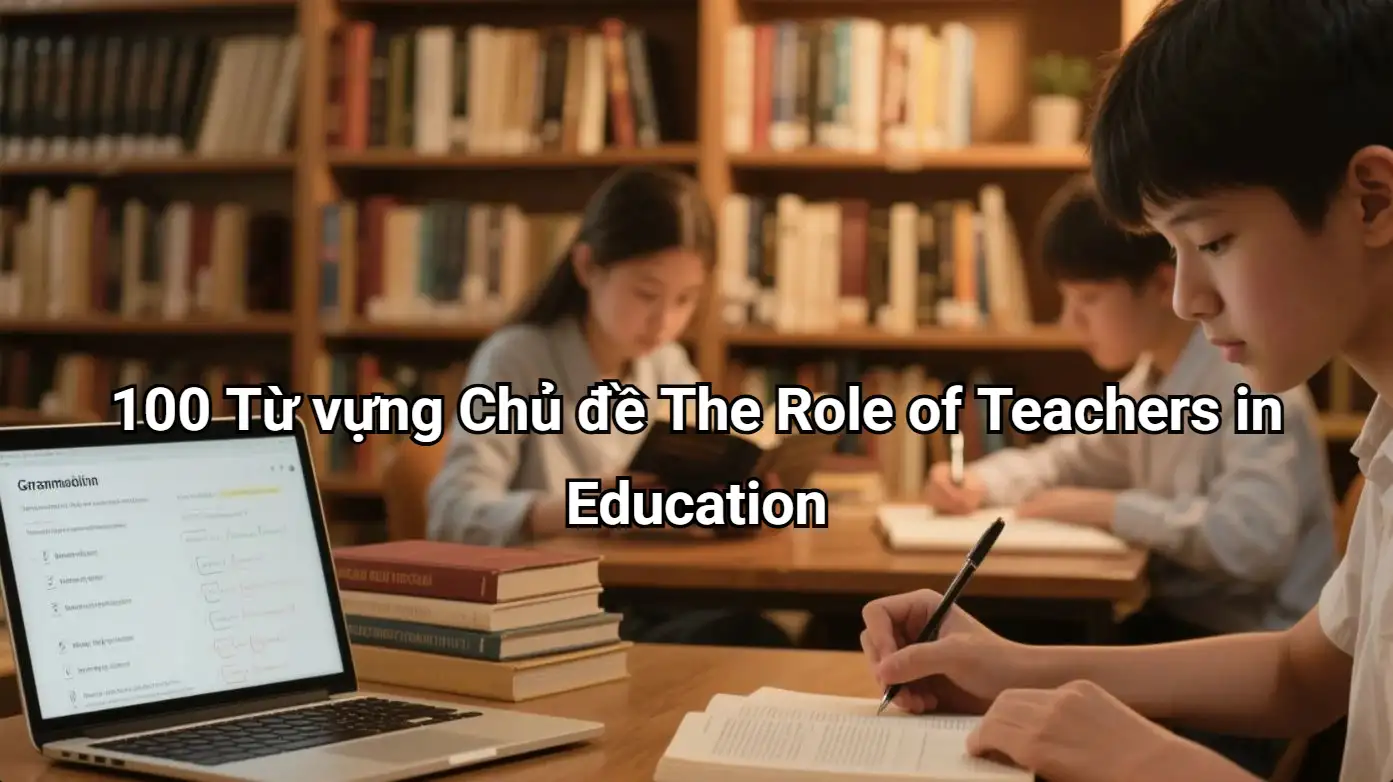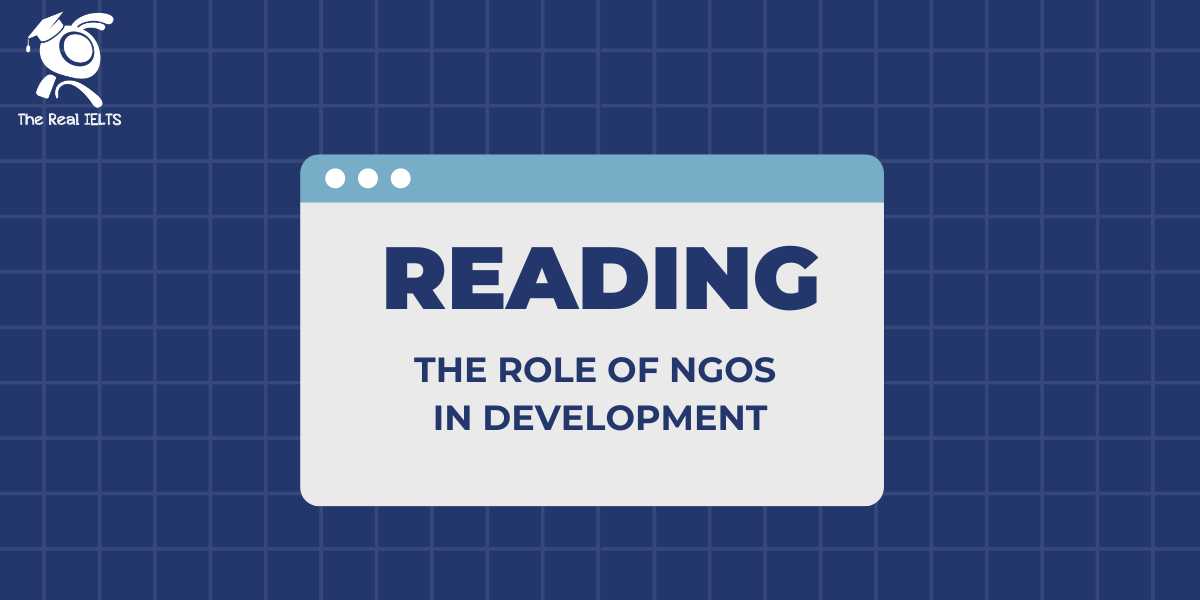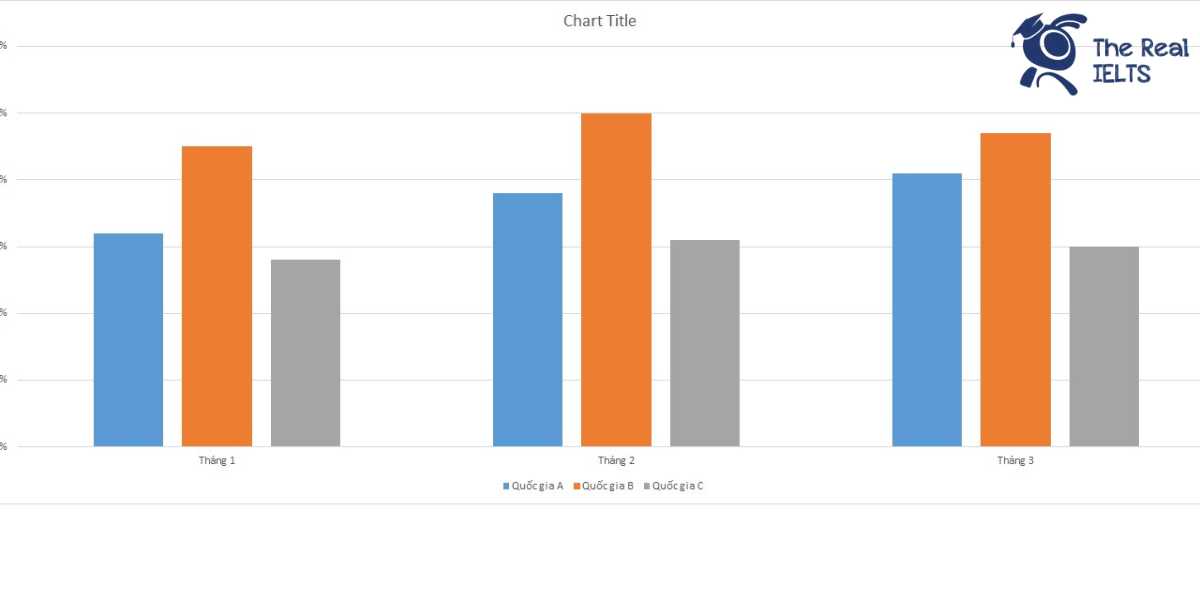Kỹ năng viết đóng vai trò quan trọng không chỉ ở mặt điểm số mà còn thể hiện rõ khả năng lập luận và diễn đạt học thuật của thí sinh. Đặc biệt, IELTS Writing Task 2 Phần 39 thường yêu cầu người học xử lý các chủ đề xã hội quen thuộc dưới góc nhìn phản biện. Việc nắm vững cấu trúc bài luận, biết cách triển khai luận điểm mạch lạc và sử dụng ngôn ngữ phù hợp là yếu tố then chốt để đạt band điểm cao.
Đọc thêm: IELTS Writing Task 2 Phần 39.
Đề 1 IELTS Writing Task 2
Many people believe that governments should spend more money on public transportation to reduce traffic congestion and pollution. Others argue that this money should be used for other priorities, such as healthcare or education. Discuss both views and give your own opinion.
Bài essay (Band 6.5)
In recent years, the issue of government spending has been widely debated. Some believe that investing in public transportation is essential to address traffic congestion and pollution, while others argue that funds should prioritize healthcare and education. This essay will discuss both views and present my perspective.
On the one hand, improving public transportation has significant benefits. Efficient systems like buses and trains can reduce the number of private cars on roads, leading to less traffic congestion. For example, cities with reliable metro systems, such as Tokyo, experience smoother traffic flow. Additionally, public transport produces fewer emissions than cars, helping to combat environmental pollution. Therefore, this investment is seen as a practical solution to urban problems.
On the other hand, some argue that healthcare and education are more urgent priorities. A well-funded healthcare system ensures that citizens have access to quality medical care, which is critical for a healthy population. Similarly, investing in education equips people with skills for better job opportunities. For instance, better schools can improve literacy rates, which benefits society in the long term. Thus, these areas may have a greater impact on people’s lives.
In my opinion, while healthcare and education are vital, public transportation deserves more funding because it addresses immediate environmental and traffic issues. A balanced approach, however, could ensure all sectors benefit. In conclusion, although other priorities are important, investing in public transport offers practical solutions to pressing urban challenges.
Chấm điểm (4 tiêu chí)
Task Response: 6.5
The essay addresses both views and provides a clear opinion, fulfilling the task requirements. However, the arguments are somewhat general, and examples (e.g., “Tokyo”) lack detailed explanation. Deeper analysis or more specific examples would help achieve Band 7.
Coherence and Cohesion: 6.5
The essay is well-organized with clear paragraphs and linking words (e.g., “For example,” “Therefore”). However, transitions between ideas are sometimes basic, and cohesive devices are slightly repetitive. Using varied connectors like “Conversely” or “As a result” would improve the score.
Lexical Resource: 6.5
The vocabulary is appropriate for Band 6.5, with some academic phrases (e.g., “significant benefits,” “combat environmental pollution”). Word choice is occasionally repetitive, and more precise or varied terms could push the score to Band 7.
Grammatical Range and Accuracy: 6.5
The essay uses a mix of simple and complex sentences with generally accurate grammar. Minor errors (e.g., “deserves more funding” could be clearer) and limited use of advanced structures prevent a higher score. More diverse sentence types would enhance the score.
Phân tích từ vựng
- significant benefits
- Nghĩa: Lợi ích đáng kể.
- Giải thích: Cụm này mang tính học thuật, thường dùng để nhấn mạnh tầm quan trọng hoặc tác động lớn của một yếu tố. Trong bài, nó được dùng đúng để mô tả lợi ích của giao thông công cộng, nhưng cần thay bằng “substantial advantages” để tránh lặp từ.
- less traffic congestion
- Nghĩa: Giảm ùn tắc giao thông.
- Giải thích: Cụm này phổ biến trong các bài viết về giao thông, thể hiện kết quả tích cực của chính sách. Trong bài, nó phù hợp nhưng nên kết hợp với từ như “alleviate traffic jams” để tăng tính đa dạng.
- combat environmental pollution
- Nghĩa: Chống ô nhiễm môi trường.
- Giải thích: “Combat” là động từ mạnh, phù hợp để mô tả hành động giải quyết vấn đề nghiêm trọng. Trong bài, cụm này được dùng đúng nhưng có thể thay bằng “mitigate pollution” để đạt Band 7.
- practical solution
- Nghĩa: Giải pháp thực tế.
- Giải thích: Cụm này nhấn mạnh tính khả thi của một phương án, thường dùng trong văn học thuật. Tuy nhiên, nó khá phổ biến và có thể thay bằng “feasible approach” để tăng tính học thuật.
- greater impact
- Nghĩa: Tác động lớn hơn.
- Giải thích: Cụm này được dùng để so sánh mức độ ảnh hưởng của các lĩnh vực như y tế và giáo dục. Trong bài, nó phù hợp nhưng nên kết hợp với từ như “profound effect” để đa dạng hóa.
- quality medical care
- Nghĩa: Chăm sóc y tế chất lượng.
- Giải thích: Cụm này mang tính học thuật, dùng để mô tả dịch vụ y tế tốt. Trong bài, nó được dùng đúng nhưng có thể thay bằng “effective healthcare services” để tăng tính phong phú.
Phân tích ngữ pháp
- complex sentences (e.g., “For example, cities with reliable metro systems, such as Tokyo, experience smoother traffic flow.”)
- Giải thích: Câu phức được dùng đúng, kết hợp mệnh đề chính và phụ để đưa ra ví dụ. Tuy nhiên, bài viết cần thêm các cấu trúc phức tạp hơn như “not only… but also…” hoặc câu điều kiện để đạt Band 7.
- comparative structures (e.g., “more urgent priorities”)
- Giải thích: Cấu trúc so sánh được dùng đúng để nhấn mạnh tầm quan trọng của y tế và giáo dục. Tuy nhiên, bài viết thiếu các cấu trúc so sánh phức tạp hơn như “far more critical” hoặc “less pressing than,” làm hạn chế sự đa dạng.
- modal verbs (e.g., “can reduce the number of private cars”)
- Giải thích: Động từ khuyết thiếu “can” được dùng đúng để diễn tả khả năng. Tuy nhiên, bài viết chỉ dùng “can” và thiếu các động từ như “could” hoặc “should,” làm giảm tính linh hoạt.
- minor error (e.g., “deserves more funding” could be “warrants increased investment”)
- Giải thích: Câu này đúng ngữ pháp nhưng diễn đạt chưa đủ chính xác và học thuật. Cách dùng từ “deserves” hơi thông dụng, làm giảm chất lượng. Để đạt Band 7, cần diễn đạt cụ thể và học thuật hơn.
Tổng kết & gợi ý cải thiện
Tổng kết: Bài viết đạt Band 6.5 nhờ cấu trúc rõ ràng, lập luận cơ bản, và từ vựng phù hợp. Tuy nhiên, các ý chưa được phát triển sâu, từ vựng và ngữ pháp thiếu đa dạng, và có một số lỗi nhỏ. (Một số nhận xét mang tính ước lượng vì không thể mô phỏng chính xác chấm điểm như người thật.)
Gợi ý cải thiện để đạt Band 7:
- Phát triển ý sâu hơn: Thêm ví dụ cụ thể (e.g., một hệ thống giao thông công cộng nổi tiếng) và phân tích chi tiết hơn về lợi ích hoặc hạn chế của các lĩnh vực.
- Đa dạng từ vựng: Sử dụng từ đồng nghĩa (e.g., thay “practical” bằng “viable”) và cụm học thuật nâng cao hơn.
- Tăng cấu trúc ngữ pháp: Dùng các cấu trúc như câu điều kiện, bị động phức tạp, hoặc so sánh nâng cao để thể hiện sự linh hoạt.
- Cải thiện liên kết: Sử dụng các từ nối như “On the contrary” hoặc “Consequently” để chuyển ý mượt mà hơn.
Bằng cách tập trung vào những điểm này, bài viết có thể đạt Band 7 hoặc cao hơn.
Đề 2 IELTS Writing Task 2
In some countries, the government spends a large amount of money on arts and cultural activities, such as museums and theaters. Some people believe this is a waste of money and that the funds should be used for more practical issues like healthcare and education. Discuss both views and give your own opinion.
Bài essay (Band 6.5)
In many countries, government spending on arts and cultural activities is a topic of debate. Some argue that this is a misuse of public funds, while others believe it is important for society. This essay will discuss both perspectives and present my own view.
On the one hand, critics of funding the arts argue that the money should be allocated to pressing issues like healthcare and education. These sectors directly impact people’s lives by improving their well-being and opportunities. For instance, better hospitals can save lives, and quality education can equip individuals with skills for employment. When budgets are limited, prioritizing practical needs seems reasonable, as arts may appear less essential. This view is particularly strong in poorer countries where basic services are lacking.
On the other hand, supporters of arts funding believe it has significant benefits. Museums and theaters preserve cultural heritage, which strengthens national identity and pride. Additionally, cultural activities can boost tourism, generating income for local communities. For example, a well-maintained museum can attract visitors, creating jobs. Moreover, the arts can inspire creativity, which is valuable for personal and societal development. Therefore, investing in culture is not just about enjoyment but also about long-term gains.
In my opinion, both sides have merit, but a balanced approach is best. Governments should prioritize essential services like healthcare and education but also allocate some funds to the arts to enrich society. This ensures practical needs are met while maintaining cultural values.
In conclusion, while healthcare and education are critical, arts funding has its own importance. A combination of both is the most effective solution.
Chấm điểm (4 tiêu chí)
Task Response: 6.5
The essay addresses both views and provides a clear opinion. Ideas are relevant but lack deeper exploration (e.g., specific examples of arts’ economic impact). More development of arguments could push this to Band 7.
Coherence and Cohesion: 6.5
The essay is well-structured with clear paragraphs and linking words like “for instance” and “moreover.” However, some transitions are basic, and ideas within paragraphs could flow more naturally to achieve a higher score.
Lexical Resource: 6.5
The vocabulary is appropriate, with some academic phrases (e.g., pressing issues, preserve cultural heritage). However, there is some repetition (e.g., “important”), and more varied or precise word choices could improve the score.
Grammatical Range and Accuracy: 6.5
The essay uses a mix of simple and complex sentences with generally accurate grammar. Minor errors, such as article misuse or awkward phrasing, do not hinder communication but prevent a Band 7.
Phân tích từ vựng
- Pressing issues
- Nghĩa tiếng Việt: Các vấn đề cấp bách.
- Giải thích: Cụm từ này thường dùng trong văn học thuật để chỉ những vấn đề cần được ưu tiên giải quyết ngay lập tức, như y tế hoặc giáo dục. Nó mang tính trang trọng và phù hợp với bài nghị luận. Ví dụ: “Governments must address pressing issues like poverty.”
- Equip individuals with skills
- Nghĩa tiếng Việt: Trang bị cho cá nhân các kỹ năng.
- Giải thích: Cụm này dùng để mô tả việc cung cấp kiến thức hoặc năng lực cho con người, thường liên quan đến giáo dục hoặc đào tạo. Nó phổ biến trong các bài viết về lợi ích của giáo dục. Ví dụ: “Vocational training equips individuals with practical skills.”
- Preserve cultural heritage
- Nghĩa tiếng Việt: Bảo tồn di sản văn hóa.
- Giải thích: Cụm từ học thuật, dùng để chỉ hành động giữ gìn các giá trị văn hóa, lịch sử. Nó phù hợp khi thảo luận về vai trò của nghệ thuật hoặc bảo tàng. Ví dụ: “Museums play a key role in preserving cultural heritage.”
- Inspire creativity
- Nghĩa tiếng Việt: Khơi dậy sự sáng tạo.
- Giải thích: Cụm này dùng để mô tả tác động tích cực của nghệ thuật hoặc giáo dục trong việc khuyến khích tư duy sáng tạo. Nó mang tính tích cực và thường xuất hiện trong văn nghị luận. Ví dụ: “Art classes can inspire creativity in young students.”
- Balanced approach
- Nghĩa tiếng Việt: Cách tiếp cận cân bằng.
- Giải thích: Cụm từ chỉ một phương pháp giải quyết vấn đề bằng cách dung hòa các yếu tố khác nhau. Nó phổ biến trong bài IELTS khi đưa ra ý kiến trung dung. Ví dụ: “A balanced approach to environmental protection involves both regulation and innovation.”
- Enrich society
- Nghĩa tiếng Việt: Làm phong phú cho xã hội.
- Giải thích: Cụm này dùng để chỉ việc cải thiện chất lượng cuộc sống hoặc văn hóa của cộng đồng. Nó phù hợp khi nói về lợi ích của nghệ thuật hoặc giáo dục. Ví dụ: “Public libraries enrich society by providing access to knowledge.”
Phân tích ngữ pháp
- Complex sentences (e.g., “When budgets are limited, prioritizing practical needs seems reasonable.”)
- Giải thích tiếng Việt: Câu phức với mệnh đề phụ thuộc (when) được dùng đúng để giải thích điều kiện. Đây là điểm mạnh ở Band 6.5, nhưng cần đa dạng hơn về loại mệnh đề (e.g., although, unless) để đạt Band 7.
- Article misuse (e.g., “better hospitals can save lives” – đúng, nhưng dễ sai nếu viết “better hospital can save lives.”)
- Giải thích tiếng Việt: Mạo từ (a/an/the) đôi khi bị dùng sai ở Band 6.5. Trong bài, mạo từ khá chính xác, nhưng cần chú ý danh từ số nhiều không cần “the” nếu nói chung (e.g., “hospitals” thay vì “the hospitals” trong ngữ cảnh tổng quát).
- Awkward phrasing (e.g., “arts may appear less essential” – đúng nhưng hơi vụng.)
- Giải thích tiếng Việt: Một số câu trong bài có cách diễn đạt chưa tự nhiên, làm giảm tính trôi chảy. Ví dụ, “less essential” có thể thay bằng “less critical” để rõ ràng hơn. Luyện viết câu tự nhiên hơn sẽ giúp đạt Band 7.
- Passive voice (e.g., “money should be allocated to pressing issues.”)
- Giải thích tiếng Việt: Câu bị động được dùng đúng để nhấn mạnh hành động hơn chủ thể. Tuy nhiên, lạm dụng bị động có thể làm bài viết kém sinh động. Cần kết hợp với câu chủ động để tăng tính đa dạng.
Tổng kết & gợi ý cải thiện
The essay is a strong Band 6.5, with a clear structure, relevant arguments, and appropriate language. However, it misses Band 7 due to limited idea development, basic transitions, and minor grammatical errors. To reach Band 7:
- Expand arguments: Include more specific examples (e.g., how a specific museum boosted tourism) or counterarguments to show depth.
- Improve cohesion: Use varied linking devices (e.g., “on the contrary,” “as a result”) and ensure smoother idea flow within paragraphs.
- Enhance vocabulary: Replace repetitive words (e.g., “important”) with synonyms like “crucial” or “vital” and use more precise terms.
- Refine grammar: Eliminate minor errors (e.g., article misuse) and practice natural phrasing through reading model essays.
Đề 3 IELTS Writing Task 3
In some countries, young people are encouraged to work or travel for a year between finishing high school and starting university studies. Discuss the advantages and disadvantages of this practice and give your own opinion.
Bài essay (Band 6.5)
In many countries, taking a gap year to work or travel before entering university is becoming increasingly popular. While some believe this practice brings significant benefits, others argue it has notable drawbacks. This essay will discuss both the advantages and disadvantages of a gap year and present my perspective.
One major advantage of a gap year is that it allows young people to gain practical experience. For example, working in a job can help them develop skills like time management or teamwork, which are valuable for their future careers. Additionally, traveling during this period can broaden their horizons, exposing them to new cultures and perspectives. This can make them more mature and better prepared for university life.
However, there are also disadvantages to consider. A gap year might disrupt academic progress, as students could lose study habits or forget key knowledge. For instance, after a year of working or traveling, some may find it hard to return to rigorous academic routines. Furthermore, taking a gap year can be financially burdensome, especially if students need to fund their travels or do not earn enough from temporary jobs.
In my opinion, the benefits of a gap year outweigh the drawbacks, provided it is well-planned. A structured gap year, with clear goals like gaining work experience or learning a new skill, can be highly beneficial.
In conclusion, while a gap year has challenges such as academic disruption and financial costs, it offers valuable opportunities to enhance personal growth. With proper planning, it can be a rewarding experience.
Chấm điểm (4 tiêu chí)
Task Response: 6.5
The essay addresses both advantages and disadvantages and provides a clear opinion. Ideas are relevant, but the arguments are somewhat general, with limited development of examples, which keeps the score at 6.5.
Coherence and Cohesion: 6.5
The essay is logically organized with clear paragraphs. Linking words like “for example” and “furthermore” are used effectively, but transitions between ideas are occasionally abrupt, and some ideas are repeated, affecting cohesion slightly.
Lexical Resource: 6.5
The vocabulary is appropriate for Band 6.5, with phrases like broaden their horizons and financially burdensome. However, there is some repetition, and more varied or precise word choices could improve the score.
Grammatical Range and Accuracy: 6.5
The essay uses a mix of simple and complex sentences, but minor errors (e.g., article misuse or awkward phrasing) occur. The range of structures is adequate but not extensive enough for Band 7.
Phân tích từ vựng
- Increasingly popular
- Nghĩa: Ngày càng phổ biến
- Giải thích: Cụm từ học thuật dùng để mô tả xu hướng đang gia tăng. Thường xuất hiện trong phần giới thiệu để chỉ một hiện tượng phổ biến. Ví dụ: “Online learning is increasingly popular among students.”
- Gain practical experience
- Nghĩa: Thu thập kinh nghiệm thực tế
- Giải thích: Dùng để chỉ việc học các kỹ năng thực tiễn thông qua công việc hoặc hoạt động. Phù hợp khi nói về lợi ích của công việc hoặc trải nghiệm ngoài học thuật.
- Broaden their horizons
- Nghĩa: Mở rộng tầm nhìn
- Giải thích: Cụm từ mang tính hình tượng, dùng để chỉ việc tiếp xúc với ý tưởng hoặc văn hóa mới. Thường dùng trong ngữ cảnh giáo dục hoặc du lịch.
- Disrupt academic progress
- Nghĩa: Làm gián đoạn tiến độ học tập
- Giải thích: Cụm này dùng để chỉ tác động tiêu cực đến việc học. Thích hợp khi thảo luận về nhược điểm của việc tạm dừng học tập.
- Financially burdensome
- Nghĩa: Gánh nặng tài chính
- Giải thích: Một cụm từ học thuật để chỉ chi phí lớn hoặc khó khăn về tài chính. Thường dùng trong bài viết về kinh tế hoặc xã hội.
- Enhance personal growth
- Nghĩa: Thúc đẩy sự phát triển cá nhân
- Giải thích: Dùng để chỉ sự cải thiện về kỹ năng, tính cách hoặc nhận thức. Phù hợp trong ngữ cảnh giáo dục hoặc phát triển bản thân.
Phân tích ngữ pháp
- Complex sentences
- Giải thích: Bài sử dụng câu phức như “For example, working in a job can help them develop skills like time management or teamwork, which are valuable for their future careers.” Đây là điểm mạnh, nhưng số lượng câu phức còn ít và có một số lỗi nhỏ. Để đạt Band 7, cần tăng số câu phức và đảm bảo độ chính xác cao hơn.
- Article errors
- Giải thích: Có lỗi nhỏ về mạo từ, ví dụ: “taking a gap year” đúng, nhưng cụm “rigorous academic routines” có thể rõ hơn nếu là “the rigorous academic routines.” Lỗi này phổ biến ở Band 6.5 và làm giảm điểm.
- Conditional sentences
- Giải thích: Bài không sử dụng nhiều câu điều kiện, nhưng có thể cải thiện bằng cách thêm cấu trúc như “If students plan their gap year carefully, they could…” để tăng độ phức tạp. Hiện tại, bài chỉ dùng cấu trúc đơn giản, hạn chế điểm ở Band 6.5.
- Verb tense consistency
- Giải thích: Bài sử dụng thì hiện tại đơn và hiện tại hoàn thành đúng (e.g., “is becoming increasingly popular”). Tuy nhiên, một số câu có thể rõ hơn nếu dùng thì quá khứ để kể ví dụ cụ thể, giúp tăng tính thuyết phục.
Tổng kết & gợi ý cải thiện
Tổng kết: Bài viết đạt Band 6.5 nhờ cấu trúc rõ ràng, từ vựng học thuật phù hợp, và lập luận cơ bản. Tuy nhiên, các ý chưa được phát triển sâu, từ vựng có phần lặp lại, và lỗi ngữ pháp nhỏ làm giảm chất lượng tổng thể.
Gợi ý cải thiện để đạt Band 7:
- Phát triển ý chi tiết hơn: Thêm ví dụ cụ thể hoặc số liệu (e.g., “A survey showed that 70% of gap-year students felt more confident in their studies”).
- Đa dạng từ vựng: Sử dụng từ đồng nghĩa (e.g., thay “disrupt” bằng “hinder” hoặc “impede”) và tránh lặp từ.
- Tăng độ phức tạp ngữ pháp: Sử dụng câu điều kiện, câu bị động, hoặc cấu trúc như “not only… but also…” để tăng độ phong phú.
- Cải thiện cohesion: Dùng từ nối đa dạng hơn (e.g., “on the contrary” thay vì “however”) và đảm bảo chuyển ý mượt mà.
Đề 4 IELTS Writing Task 4
Some people believe that students should be taught how to manage money at school. Do you agree or disagree?
Bài essay (Band 6.5)
In today’s world, money plays a crucial role in everyone’s life. Some people argue that financial education should be a part of the school curriculum to help students become more responsible with their spending. I agree with this idea to a certain extent, although I believe it should not be the main focus of school education.
On the one hand, teaching students how to manage money can prepare them for real-life situations. For example, they can learn how to save money, plan a budget, or avoid unnecessary expenses. These skills are important, especially in modern society where young people often face many advertisements and financial temptations. If students know how to use money wisely, they will be less likely to fall into debt or make poor financial choices.
On the other hand, schools already have many subjects to cover, and adding financial education might put more pressure on students and teachers. Moreover, money management is also a responsibility that can be taught at home by parents. Not every student needs the same financial knowledge, and a one-size-fits-all course might not be effective. Therefore, it might be better to offer it as an optional subject or as part of life skills classes.
In conclusion, while it is beneficial for students to learn how to handle money, schools should not treat it as a core subject. A balanced approach, with some basic lessons included, would be the most practical solution.
Chấm điểm (4 tiêu chí)
Task Response: 6.5
Trả lời đúng yêu cầu đề bài, có quan điểm rõ ràng, ví dụ hợp lý. Tuy nhiên, phần phát triển ý chưa đủ chiều sâu và một số lập luận còn khá chung chung.
Coherence and Cohesion: 6.5
Bài viết có bố cục rõ ràng, các đoạn chuyển tiếp hợp lý. Tuy nhiên, các từ nối như “for example”, “on the other hand” được lặp lại ở mức đơn giản, chưa đa dạng.
Lexical Resource: 6.5
Từ vựng học thuật ở mức trung bình. Dùng được nhiều cụm từ liên quan đến chủ đề tài chính nhưng chưa phong phú. Một số từ/cụm được lặp lại (“money”, “students”).
Grammatical Range and Accuracy: 6.0
Có sử dụng một số cấu trúc phức hợp, nhưng vẫn mắc lỗi nhỏ về chia thì, cấu trúc bị động và sự đa dạng trong kiểu câu chưa cao.
Phân tích từ vựng (in đậm + dịch + giải thích)
- financial education – giáo dục tài chính
→ Dùng trong ngữ cảnh học thuật khi nói về nội dung học liên quan đến tiền bạc, tài chính cá nhân. - manage money – quản lý tiền
→ Một cụm động từ thông dụng, phù hợp cho cả văn nói và viết học thuật. - plan a budget – lập kế hoạch chi tiêu
→ Cụm này diễn đạt kỹ năng tài chính quan trọng; thường dùng trong bài luận về kỹ năng sống. - real-life situations – tình huống thực tế
→ Dùng để nói về những kinh nghiệm ngoài trường học, tạo lập bối cảnh cho luận điểm. - financial temptations – cám dỗ tài chính
→ Cụm danh từ nâng cấp, thể hiện khả năng diễn đạt rõ các vấn đề xã hội phức tạp hơn. - one-size-fits-all – phù hợp cho tất cả
→ Thành ngữ thường dùng để chỉ giải pháp không linh hoạt, hiệu quả thấp trong giáo dục. - life skills classes – lớp học kỹ năng sống
→ Gợi ý giải pháp cụ thể và có liên hệ rõ ràng với chủ đề giáo dục.
Phân tích ngữ pháp (in đậm + giải thích tiếng Việt)
- “Some people argue that…”
→ Cấu trúc gián tiếp thông dụng để nêu quan điểm, dùng đúng nhưng có thể thay đổi cách diễn đạt để tránh lặp. - “they can learn how to save money, plan a budget, or avoid unnecessary expenses.”
→ Danh sách hành động dùng chính xác, có tính liệt kê – giúp bài dễ hiểu. - “If students know how to use money wisely…”
→ Câu điều kiện loại 1 – dùng đúng nhưng có thể thêm biến thể nâng cấp bài viết. - “Not every student needs the same financial knowledge…”
→ Câu phủ định có cấu trúc chủ động – thể hiện sự linh hoạt trong dùng ngữ pháp. - “schools should not treat it as a core subject.”
→ Câu bị động ở hiện tại đơn – dùng đúng, thể hiện khả năng dùng cấu trúc nâng cao cơ bản.
Tổng kết & gợi ý cải thiện
Bài viết đáp ứng được yêu cầu của đề và phù hợp với mức Band 6.5. Quan điểm rõ ràng, cấu trúc hợp lý, từ vựng đủ dùng. Tuy nhiên, để nâng lên Band 7.0, người viết cần:
- Phát triển ý sâu hơn bằng cách thêm ví dụ cụ thể, dẫn chứng thực tế.
- Tránh lặp từ (ví dụ: “money”, “students”) bằng cách dùng từ đồng nghĩa hoặc chuyển cấu trúc.
- Đa dạng hóa từ nối và cấu trúc câu (ví dụ: dùng mệnh đề quan hệ, câu điều kiện loại 2, đảo ngữ nhẹ…).
- Tăng cường sử dụng cụm từ học thuật mang tính phân tích (e.g., “long-term impact”, “financial literacy gap”).


